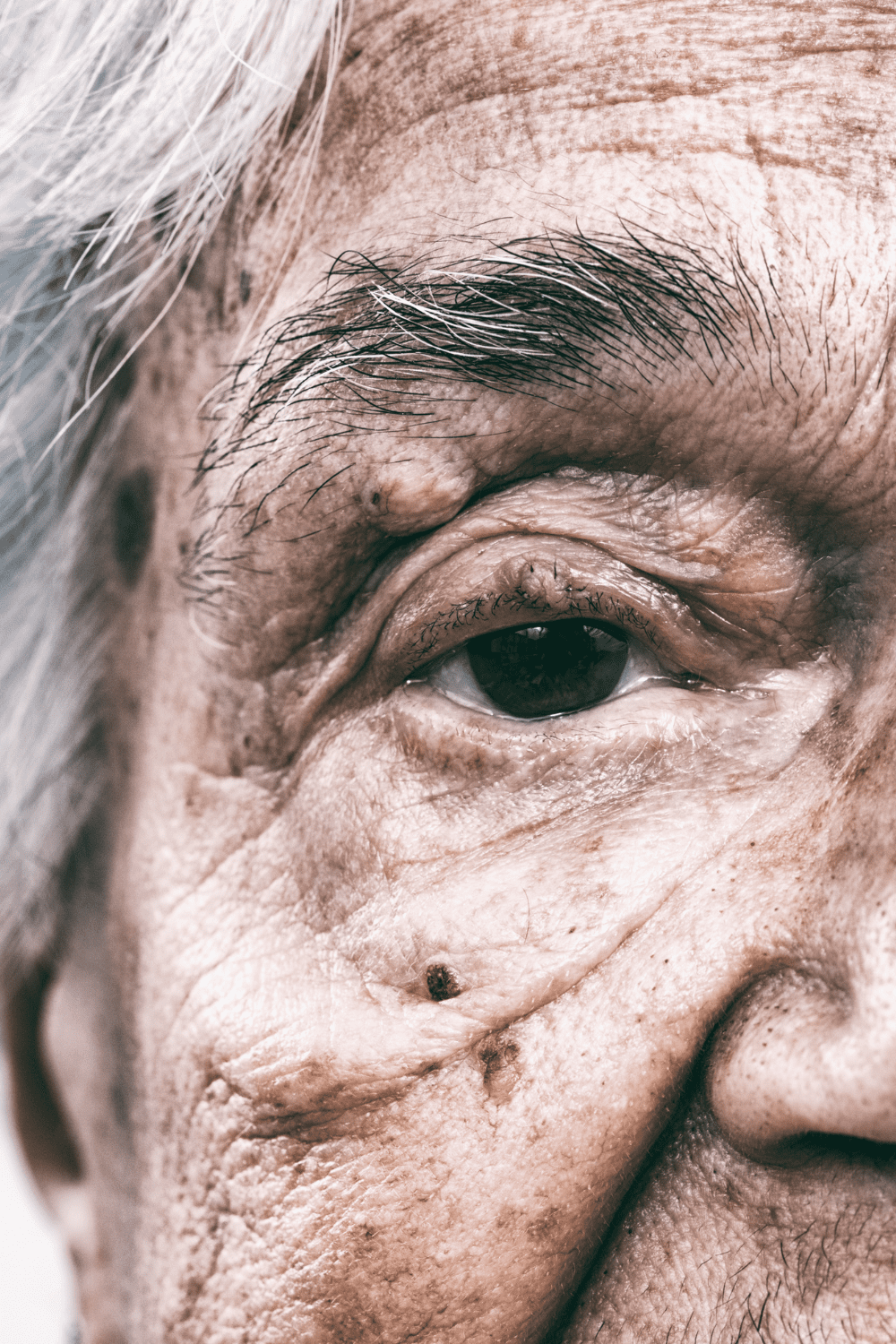Mourning as Resistance in the Age of Manufactured Scarcity

How grief becomes the most radical act of all
They tell us to move on. They say it with business cards and productivity apps, with wellness influencers peddling five-step programs to “optimize your healing journey.” They whisper it in performance reviews and lease renewals, in the gentle violence of “thoughts and prayers” followed immediately by “but life goes on.”
But what if life going on IS the problem?
What if our collective numbness serves a system that profits from our disconnection…from ourselves, from each other, from the earth beneath our hurrying feet? What if mourning, in all its raw and untidy glory, is the most subversive act we can perform in an age that has weaponized scarcity against our very souls?
The Geography of Loss
My mother sits beside me, alive but disappearing in increments. Corticobasal degeneration—words that sounded clinical until they became the daily erosion of the woman who raised me. Some days she’s fully here, laughing at our jokes, offering advice with the same clarity that carried our family through decades of barely enough. Other days, her hands forget how to put on her shirt, and I watch her frustration bloom into sadness at her own betrayal by flesh and synapse.
I mourn her while she’s still breathing. I mourn the conversations growing shorter, the way she sometimes looks at familiar objects like strangers. I mourn the plans I made for when I finally had enough money…the trips I’d take her on, the house with the yard she always wanted, the peaceful retirement she earned but never got. But mostly, I mourn the time..the decades she spent working herself thin to keep a roof over our heads when she should have been resting, dreaming, becoming.
The economy demands your grief be efficient. Portable. Compartmentalized into lunch breaks and therapy appointments that your insurance may or may not cover. But mourning refuses such neat boundaries. It bleeds through spreadsheets and conference calls, demanding its ancient right to reshape you completely.
The Scarcity Machine
Manufactured scarcity is not just about empty shelves or housing markets. It lives in the way we’ve been trained to ration our attention, our compassion, our capacity for deep feeling. It convinces us that time spent in grief is time stolen from productivity, that emotional labor is a luxury the economy cannot afford.
The machine runs on our depletion. It needs us hollow, hungry, always reaching for the next purchase, the next promotion, the next distraction from the ache that lives just beneath our ribs. It requires us to move through loss like consumers moving through a mall-quickly, efficiently, without lingering too long in any one place.
But grief refuses the pace of commerce. It sits down in the middle of the highway and weeps. It stops traffic. It insists on its own timeline, its own terrible and necessary rhythm.
The Dreams That Poverty Deferred
I mourn the life my mother deserved but never got. The one where she could have chosen her work instead of taking whatever paid enough to keep the lights on. I grieve the vacations she never took, the college degree she never finished, the dance studio she never had, and the flowers she never planted because rental apartments don’t allow such permanence.
At 76, even on her good days, the window for certain dreams has closed. I cannot give her back her thirties when she might have traveled to Italy, or her forties when she might have started that business, or her fifties when she might have learned to paint watercolors. I cannot restore the decades that poverty consumed, when survival used up all the bandwidth that should have been available for thriving.
This grief carries its own particular rage at the economic system that rewrote her past. Every year she spent working jobs that underpaid and overworked her was a year stolen from the life she deserved. Every promotion that never came, every vacation that had to be postponed indefinitely, every dream deferred until “someday when we have more money” …all of it feels like theft now that someday has become too late.
I want to shower her with everything she couldn’t afford before: the soft cashmere sweaters, the fresh flowers every week, the meals at restaurants she always said were “too expensive right now- but someday we’ll be able to.” But I discover that the cruelest aspect of manufactured scarcity is how it trains us to believe we don’t deserve abundance even when it finally becomes possible. She still checks price tags out of habit, still chooses the generic brand, still apologizes for wanting anything that feels like luxury.
My mourning becomes an act of resistance against every system that convinced my family that struggle was noble, that wanting more was greedy, that people like me should be grateful for scraps. In grieving what she never had, I commit to dismantling the lie that working-class dreams don’t matter as much as rich ones.
Energy as Love Poured Out
I mourn my energy differently now. The bone-deep tiredness that comes from loving someone whose body is betraying them in slow motion. I grieve the way my heart breaks and heals and breaks again each time she forgets how to open the door, each time she apologizes for being “difficult” when she’s never been anything but grace under impossible pressure.
The culture of toxic productivity feels especially obscene when you’re measuring time in good days and bad days, when you’re calculating how much vacation time you can afford to spend on doctor appointments and gentle afternoons. I mourn the energy I once spent on things that don’t matter…the endless scrolling, the worry about other people’s opinions, the pursuit of accomplishments that feel hollow next to the simple miracle of helping my mom remember how to use her phone.
But this exhaustion carries a different weight than the depletion of meaningless work. This tiredness comes from pouring love into its proper vessel, from finally understanding what energy is actually for. When you refuse to begrudge the time spent caring, you begin to reclaim your life force from systems that would rather you spend it on their priorities instead of your own.
Time Theft and the Revolutionary Act of Presence
Above all, I mourn time…not just the time that’s slipping away now as her mind reorganizes itself around absence, but the time that was stolen long before diagnosis ever entered my vocabulary. The decades she spent working multiple jobs while her dreams deferred indefinitely. The years when exhaustion was her constant companion and rest felt like a luxury the family budget couldn’t afford. The moments when she should have been dancing, reading, traveling, becoming—but instead was clocking in, cleaning up, making do.
I watch her now on her good days, still beautiful at 76, still sharp enough to remind me to eat breakfast, and I rage against every employer who extracted her prime years for wages that couldn’t cover rent. I mourn the version of her retirement that existed in my childhood imagination…the one where she had energy for hobbies, resources for adventures, time to finally live instead of just survive.
Now, in the tender space between her diagnosis and tomorrow, I commit the revolutionary act of refusing to let any more precious time slip away unwitnessed. I sit with her in the morning light. I listen to her stories about her grandmother’s dogs. We watch old movies together and let her tell me the endings she remembers differently. Each moment becomes an act of rebellion against the scarcity that stole so many years before I knew how to fight back.
The Politics of Feeling Everything
In a world that profits from our emotional disconnection, the choice to feel deeply becomes inherently political. When you refuse to numb yourself with work, with consumption, with the endless scroll of manufactured outrage-you threaten a system that requires your unconscious participation.
Mourning breaks the spell of productivity culture. It insists that some things matter more than efficiency, that certain losses deserve more than a moment of silence before business as usual resumes. It creates space for questions that have no profitable answers: How do I honor the dreams that poverty stole from her? What do I owe the woman who sacrificed her prime years so I could have mine? How do I make her remaining good days beautiful when the world says her declining productivity makes her worthless?
The depth of my grief becomes a form of measurement that has nothing to do with metrics and everything to do with meaning. Each tear is a small act of rebellion against a world that would rather I felt nothing at all.
Mourning as Alchemy
But mourning is transformation. In allowing myself to feel the full weight of what I’m losing while she’s still here, I discover what becomes possible in the space between diagnosis and goodbye. In grieving the mother she was, I’m learning to love the mother she’s becoming…someone who needs more help but still tries to slide me pocket money when I walk out the door, who forgets recent conversations but remembers every story about my childhood with humbling clarity.
The time I reclaim from meaningless obligations becomes available for what actually matters: the slow mornings, the repeated stories I’ve learned to treasure instead of dreading, the way her face lights up when she remembers my childhood nickname. The energy I stop wasting on other people’s emergencies becomes available for the sacred work of witnessing someone I love navigate their own changing landscape with whatever grace they can muster.
I learn that revolution doesn’t always look like protest signs and political rallies. Sometimes it looks like choosing to be present for the difficult conversations, like refusing to let dementia steal all the joy, like insisting that my mom’s remaining good days deserve to be full of beauty even when — especially when — the world tells me to focus on productivity instead.
The Revolution Will Be Felt
In the end, mourning as resistance is about refusing to let the forces of artificial scarcity convince you that the time you spend loving someone through their decline is time stolen from more important things. It’s about understanding that in a culture that discards people when they’re no longer economically productive, every moment I spend honoring my mother’s full humanity is an act of rebellion.
It’s about recognizing that in a system built on emotional extraction, my grief for her stolen dreams and my fierce protection of her remaining dignity are not signs of weakness – no matter how hard they try to convince me they are – but declarations of what I value most. Each afternoon I spend listening to her stories is an afternoon stolen back from the machine that would rather I felt nothing at all.
So I mourn the mother she was while celebrating the mother she still is. I mourn the dreams that poverty deferred while trying to create small joys that fit her current reality…fresh flowers on her nightstand, her favorite chocolates from the bakery my dad used to treat her from, mornings when we take walks together without the pressure to be anywhere else.
I mourn the stolen decades while fiercely protecting the time that remains. My grief gets messy and inconvenient and spills into work calls and grocery store aisles, and I refuse to apologize for it anymore.
Because in feeling everything: the sadness and the beauty, the loss and the love, I become ungovernable. In honoring what’s been taken, I discover what’s worth fighting for. In refusing to move on from her diagnosis, I learn how to move forward with it. Not as victims of circumstance or bad luck, but as fully alive human beings who understand that some things are too precious to be hurried.
My mourning has become a daily practice, a way of being present to what’s happening right now. It creates a different kind of time— the deep time of presence, where every good day feels like borrowed grace and every difficult moment is still sacred because it’s ours to share together.
I feel it all. My mother deserves to be loved and mourned and celebrated all at once. The revolution depends on it.



